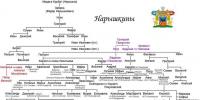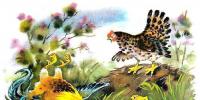Ancient Sparta. Army of the Spartans Presentation on the topic of ancient Sparta in English
4. Common word for names: Euphrates, Indus, Eurotas.





Government of Sparta
COMMANDERS
TROOPS
2 Kings
Council of Elders
DISCUSSES EVERYTHING
PROBLEMS
People's Assembly
COMPRISES
Free population
Spartans
Helots
Slaves

farmers in Sparta, considered the property of the state.
- They were Greeks
2. They lived on the land of their ancestors.
3. They lived in families.
4. It was impossible to sell them.




- The Spartan could not leave Laconia without permission from the authorities.
- The custom of citizens eating at a common meal developed in them a spirit of solidarity
- In Sparta, military exercises took place even in peacetime.
- Strictness of the law, discipline.
- Patriotism

The Spartans were the first in the world to introduce order into the actions of warriors - they came up with the PHALANX
The phalanx consisted
from 8 rows
a thousand warriors per
everyone.

Metal shield
Leather armor
Leg plates

Spartan upbringing
- The purpose of education was to raise a good soldier, to form a strong army,
The Spartans could not do anything other than military affairs.

Patriotism
- The word Fatherland meant the land of the fathers among the ancients. For everyone, the Fatherland is a part of the land that is consecrated by his family or national religion, the territory where his ancestors lived and where their ashes rest.
“The sacred land of the Fatherland,” the Greeks said.


Make a logical chain:
Lakonica
Balkan Peninsula
Peloponnese
Peloponnese
Lakonica
Why was Sparta called an open city?
What is the name of the river that flowed in Sparta?


Homework
- § 31, essay – miniature:
"One day in the life of a Spartan"

ANCIENT
SPARTA
5 CLASS

A vessel with images of warriors and chariots.
VI century BC.

LESSON PLAN
- Education and geographical location
Spartan state .
2. Spartans and helots.
3. Governance of Sparta.

Repetition of what has been learned.
A) Game “What is it? Who it?" (Guess the encrypted
words and explain their meaning)
A - - -
Ares
A - - - -
Athens
A - - - - -
Attica
A - - - - -
Archon
A - - - - - -
Areopagus

B) Replace with one word:
city-state
(policy)
evergreen trees with twisted trunks and silvery leaves
(olive)
burnt clay plate
roof coverings
(tiles)
power of the demos
(democracy)
free Athenians
(citizens)

“tidogu mesv ezhars uzars halled hikilev in ondurt”
“In great things it is difficult to please everyone right away.”

New material
KEYWORDS:
SPARTA.
SPARTANS AND HELOTS.

- Education and geographical
position of the Spartan state.
The ancestors of the Spartans came from the North
to the peninsula Peloponnese (Southern
Greece) . They settled in the area
Laconia : in the river valley Eurot
several neighboring settlements
united and began to be called
Sparta . The Spartans subjugated
all of Laconia, and its inhabitants were forced
work for themselves and began to call them
helots .
Spartan warrior.
V century BC. Bronze

2. Spartans and helots.
Helots – captured; slaves belonging to the Spartan state;
Spartans - full citizens of Sparta.
Bronze figurine of a Spartan warrior. 500 BC

3. CONTROL
SPARTOI
Council of Elders
People's Assembly
Two kings

People's Assembly
(male Spartans participated)
announced concluded chose
war world of elders
The actual power did not belong
the People's Assembly, and Council of Elders

Council of Elders
Possessed a huge and uncontrollable
power.
Spartans over 60 years old entered.
They sat for life.
Convened the People's
Negotiated with other states
meeting

TWO KINGS (LEADERS)
COMMANDERS WERE MEMBERS OF THE COUNCIL
ARMY OF ELDERS,
OBEDIENTLY
WE PERFORMED IT
WILL
POWER WAS TRANSFERRED
BY INHERITANCE

Spartan
upbringing


Spartan sword
Bronze figurine of a Spartan warrior.
V century BC
Spartan helmet. 490 BC

Phalanx
Spartan warriors. Ancient bas-relief
Spartan hoplite

In the VI century. BC. Sparta was one of the most powerful polis states in Greece.
But harsh discipline and militarization of all aspects of life led to:
- to the spiritual impoverishment of the people,
- economic backwardness of Sparta in comparison
with other Greek policies.
Sparta did not give world culture a single philosopher, poet, speaker, sculptor, or artist.
All Sparta could create was a strong army .

FIXING
TEST
OPTION 1 OPTION 2
1. Choose the correct answer:
Spartans: Sparta occupied the territory of:
a) were the original inhabitants of a) Central Greece,
Laconia, regions in the South b) Regions of Laconia in the North
Greece; Greece;
b) at the invitation of the original inhabitants c) The regions of Laconia and Messenia
came to Laconia; in the Peloponnese.
c) conquered Laconia and subjugated
its power to its original inhabitants:

2. CHOOSE THE WRONG ANSWER
OPTION 1 OPTION 2
In the Greek states, Sparta was famous as a country in which:
a) the arts flourished, a) beautiful palaces were built
and temples,
b) all residents obeyed almost b) residents were kept in slavery
military discipline and strictness of their fellow Greeks,
order, c) the Spartans were forbidden
c) infants recognized to engage in trafficking and
the elders do not have enough crafts.
healthy, dropped from the mountain
cliff into the abyss.

3. CONTINUE THE LIST:
OPTION 1 OPTION 2
Governance of Sparta Helots in Sparta:
carried out:
a) Council of Elders a) worked for owned
b) ………… allotments to the Spartans,
c) ………… b) ………….
V) ………….

4. FIND THE EXTRA.
OPTION 1 OPTION 2
SPARTAN BOYS:
a) worked hard to read and write; a) never stole someone else’s property
and letter, property,
b) the military spent hours learning it b) they knew how to endure
songs, hardships,
c) lived from the age of seven c) spoke briefly, gave accurate
separately from parents and exact answers,
groups of peers, d) have never been exposed to
d) were famous for their ability to beautifully and physically punish.
long talk.

5. NAME THE CONCEPT THAT CORRESPONDS
DEFINITION:
OPTION 1 OPTION 2
Slaves who belonged to the governing body in Sparta
Spartan state: to which it belonged
huge and uncontrollable
power:
a) helots, a) Council of Elders,
b) demos, b) People's Assembly,
c) archons. c) Areopagus.

COMPLETED:
Shkurpela Natalia Vladimirovna,
history and social studies teacher
Municipal educational institution secondary school No. 7 of Novoshakhtinsk
Rostov region.
"Theater of Greece" - Theater buildings. Back. Translated from Greek - “singing”. Ancient Greece. Only much later, in the era of Sulla, did the Atellans receive literary treatment. Theater under Octavian Augustus. Theater. Daughter of Zeus and the muse Mnemosyne. The comedy was born from the cheerful, carnival part of the holidays to Dionysus. Further. History of the Theater.
“Ancient Greece” - 2. Stages of the history of Ancient Greece. P. 52 - highlight the features of antiquity Period III millennium BC. – V century AD Mediterranean civilizations (Greece, Rome) The connection between private property and civil status The civil community is the basis of the polis The richest culture The foundation of modern European civilization. Ancient Hellas: political history.
“Gods of Greece” - Athena is the goddess of wisdom and just war. Artemis is the goddess of hunting, mountains and forests. Hermes is the messenger of the gods. Aphrodite is the goddess of love and beauty. Apollo is the sun god. Nymphs are deities of nature, its life-giving and fruitful powers. Dionysus is the god of the fruitful forces of the earth, vegetation, viticulture, and winemaking.
“The Art of Greece” - This is how the alphabet turned out. HYPNOS - god of sleep - assistant to Hades. Hellas is considered the birthplace of eloquence. Culture of Ancient Greece. The literature and art of Ancient Greece gave impetus to the development of European culture. Literature of Ancient Greece. The Greek alphabet already had 24 letters. Ancient Greek writing.
"Sparta" - People's Assembly. Spartan warrior. Connect the pairs: 1) aristocracy 2) democracy 3) oligarchy. Peloponnese - Laconia - Sparta. Spartiates (Spartans) descendants of the Dorians 9 thousand people. Make a logical chain. Luxury iron money. Life is like in a military camp. Lakonica Sparta Peloponnese Balkan Peninsula.
"In Ancient Greece" - Olympic Games. In the Doric order, the flutes are shallow, with sharp edges. Architecture. The Olympic Games significantly lost their importance with the arrival of the Romans. Stadium in Ancient Olympia. Culture of Ancient Greece. Archimedes (287 BC - 212 BC) - ancient Greek mathematician, physicist, mechanic and engineer from Syracuse.
There are a total of 33 presentations in the topic
CONTENT OF THE WORK 1. Ancient Sparta – location on the map. 2. Raising Spartans. Warriors are Spartans. 4.Preparing the Hellenes for a new war 5.Tsar Leonidas and 300 Spartans. 6.Battle of Thermopylae. Death of Tsar Leonidas 7. Conclusion with lines on the memorial plate.


In Sparta, education was a matter of national importance. Every Spartan knew how to read, write and count, knew the history of his homeland, and knew how to communicate correctly with the gods. But most of all, the Spartans succeeded in instilling courage, discipline and responsibility, in developing strength and endurance, in the ability to express briefly your thoughts and endure physical suffering steadfastly. Until the age of 7, boys were raised in a family, after which they were required to enter the angels until the age of 18, then until the age of 20, the young men underwent military training in ephebia.


Nowadays, the expression 300 Spartans is used as a symbol of courage and heroism. A small detachment of heavily armed hoplites could hold off an entire army for a long time. The Spartans knew how to put offenders in their place without resorting to physical violence against them. Leonidas 1st king of Sparta from the Agid family, son of Anaxandrides and descendant of Hercules in the 20th generation. Leonid was the 3rd of 4 sons.



In 480 BC, a large army of Persians invaded Greece. It was decided to block their path in the Thermopylae Gorge, which was a convenient point for defense. There, at Thermopylae, the first land battle took place, where the Greeks, having a secure rear, repelled enemy attacks for two days, until the traitor showed the Persians roundabout paths that led the enemy to the rear of the defenders. On the night of the third day, the Persians knocked down the barrier put up by the Greeks at the pass, and, having straddled the pass, began to go to the rear of the Greek army defending the Thermopylae pass. Noticing the detour, the Spartan king Leonidas released all the forces of the allies, who retreated to Athens, while he himself remained in place with 300 Spartans. The Persians surrounded Leonid's detachment and destroyed it in an unequal battle. Not a single Spartan surrendered to the Persians.


The feat of the Spartans of King Leonidas entered world history for centuries. Everyone knows the famous Spartan motto: with a shield or on a shield. The most respected thing in Sparta was valiant death on the battlefield. The idea of military sacrifice, King Leonidas and his small detachment went to war without hope of victory. The oracle predicted to him that either the king of Sparta must die, or Sparta itself will die. To save his homeland, Tsar Leonid voluntarily goes to his death. She is offered for her homeland and her people. Some of the best people must die in order for the rest to live.

To use presentation previews, create a Google account and log in to it: https://accounts.google.com
Slide captions:
Ancient Sparta THE ANCESTORS OF THE SPARTANS WERE THE GREEK TRIBES WHO CAME FROM THE NORTH OF THE BALKAN PENINSULA. THEY SET UP IN SOUTHERN GREECE. IN THE VALLEY OF THE RIVER EUROTH IN THE REGION OF LACONIA, SEVERAL NEIGHBORING SETTLEMENTS UNITED AND BEGAN TO BE CALLED SPARTA.
SPARTANS AND HELOTS. GRADUALLY THE SPARTANS CONQUERED ALL LACONIA, AND ITS RESIDENTS WERE FORCED TO WORK FOR THEMSELVES AND BEGAN TO BE CALLED HELOTS. NEAR LACONIA THE FERTIL MESSENIA IS LOCATED. THE SPARTANS, AFTER A FIERCE FIGHT, CONQUERED THIS REGION. THE RESIDENTS OF MESSENIA WERE ALSO TURNED INTO HELOTS.
ALL THE LANDS IN LACONIA AND MESSENIA WAS DIVIDED BETWEEN THE SPARTANS INTO EQUAL PLOTS. THE HELOTS LIVED AND WORKED ON THESE AREAS, GIVING TO THE SPARTANS THE QUANTITY OF GROWN GRAIN, OLIVES, VEGETABLES AND OTHER PRODUCTS ESTABLISHED BY THE STATE. THE HELOTS WERE SLAVES WHO OWNED THE SPARTAN STATE AND THEY WERE FORBIDDEN TO LEAVE THEIR SETTLEMENTS. . SPARTANS AND HELOTS.
THE SPARTANS TREATED THE HELOTS ROUGHLY AND CRUELLY, MOCKED THEM. FOR EXAMPLE, THEY FORCED THE HELOTS TO DRINK WINE NOT DILUTED WITH WATER, AND THEN SHOWED THEM TO THE YOUTH TO INSPIRE AN AVOIDANCE FOR DRUNKENNESS. IN LACONIA AND MESSENIA, THE HELOTS CONTAINED THE MAJORITY OF THE POPULATION. Clash of Spartans and Helots. SPARTANS AND HELOTS.
FEARING THEIR COLLUSION AND UPRISING, THE SPARTAN RULES FROM TIME TO TIME MASSAGED UNARMED PEOPLE. THE SPARTAN YOUTHS WERE GIVEN SWORDS AND SENT THEM TO WALK AROUND THE SURROUNDINGS. DURING THE DAY THEY HID, AND AT NIGHT THEY KILLED THOSE HELOTS WHO WERE MEETING ON THE ROADS. SPARTANS AND HELOTS.
YOUNG PEOPLE OFTEN WENT OUT THE FIELDS, KILLING THE STRONGEST HELOTS. THE RESIDENTS OF THE REST OF GREECE CALLED THE KILLING OF THE HELOTS A VILE DEED AND CONDEMNED THE SPARTANS FOR HOLDING THEIR FELLOW PEOPLE - THE GREEK SPARTANS AND HELOTS - IN SLAVERY.
CREATION OF THE SPARTAN STATE. SLAVES CONSISTS OF SPARTANS, VOTE DISCUSSES ALL PROBLEMS COMMANDERS ARMY FREE POPULATION
SPARTA - MILITARY CAMP. SPARTA DID NOT HAVE FORTRESS WALLS. ITS RESIDENTS CLAIMED THAT THE ONLY RELIABLE DEFENSE OF THE CITY ARE NOT STONES, BUT BRAVE MEN. THE MAIN OCCUPATION OF THE SPARTANS WAS WAR, THE SPARTAN INFANTRY WAS CONSIDERED THE BEST INFANTRY IN GREECE
ARMY OF SPARTANS. THE ARMAMENT OF THE SPARTAN WARRIOR CONSISTED OF: METAL HELMET SPEAR LEATHER ARMOR SWORD LEG ARMOR LARGE METAL SHIELD.
THE PHALANX CONSISTED OF 8 ROWS OF A THOUSAND WARRIORS EACH. THE FIRST 3 ROWS PUT SPEARS IN FRONT. THE PHALANX CAME INTO THE ENEMY AND DESTROYED HIM. THE SPARTANS FOR THE FIRST TIME IN THE WORLD INTRODUCED ORDER INTO THE ACTIONS OF THE WARRIORS INVENTED THE PHALANX THE ARMY OF THE SPARTANS.
SPARTA WAS LIKE A MILITARY CAMP WHERE NO ONE COULD LIVE THE WAY THEY WANTED. THE SPARTANS WERE FORBIDDEN TO ENGAGE IN TRADE AND CRAFTS, ALL MANUAL LABOR WAS DESPIED. ALIENS DID NOT COME TO SPARTA. THERE WERE NOTHING FOR SALE HERE AND NOTHING TO ADMISE: THERE WERE NO BEAUTIFUL BUILDINGS BUILT IN THE CITY, NO STATUES WERE PLACED.
THE RESIDENTS OF SPARTA THEMSELVES WERE NOT ALLOWED TO TRAVEL ABROAD FOR FEAR THAT THEY WOULD IMITATE THE LIFE OF OTHERS. SPARTANS WERE FORBIDDEN TO DIN AT HOME. UNITED INTO GROUPS OF A DOZEN AND A HALF, THE MEN EATED THE SAME FOODS TOGETHER: STOWAGE, VEGETABLES, A LITTLE CHEESE AND ONLY OCCASIONALLY MEAT AND FISH.
ONE DAY A FAMOUS COMMANDER RETURNED TO SPARTA AFTER A VICTORY. HE SENT IMMEDIATELY FOR HIS SHARE OF FOOD, WANTING TO EAT WITH His WIFE THIS TIME. HE NOT ONLY WAS DENIED, BUT IN ADDITION, HE WAS FINED. COMPLIANCE WITH ALL RULES WAS VICIOUSLY MONITORED BY THE COUNCIL OF ELDERS, WHICH POSSESSED HUGE AND UNCONTROLLED POWER.
THE COUNCIL INCLUDE THE MOST WORTHY CITIZENS AT LEAST 60 YEARS OLD. THEY PARTICIPATED IN MEETINGS FOR LIFE. THE PEOPLE'S ASSEMBLY, CONSISTING OF SPARTAN MEN, CHOSEN ELDERS AND WAS INVOLVED IN THE DECLARATION OF WAR AND THE CONCLUSION OF PEACE. HOWEVER, ONLY ELDERS HAD THE RIGHT TO SPEAK IN THE PEOPLE'S ASSEMBLY. THE REST VOTED FOR OR AGAINST THE PROPOSALS THEY MADE.
THE ARMY WAS COMMANDED BY TWO LEADERS, THEY WERE CALLED KINGS. THE POWER OF THE KINGS WAS HERITABLE, BUT IT WAS NOT GREAT. THE KINGS WERE PART OF THE COUNCIL OF ELDERS AND USUALLY OBEDIENTLY FOLLOWED HIS WILL. IN THE 6TH CENTURY BC. e. SPARTA BECAME ONE OF THE MOST POWERFUL POLICIES IN GREECE.
CHILDREN'S METHOD OF VOTING IN SPARTA REPLACED THE DEAD ELDER, THE SPARTANS CHOOSE A NEW ELDER. THE ELECTIONS TOOK PLACE IN THE PEOPLE'S ASSEMBLY. BEFORE THE MEETING, ONE BY ANOTHER, ALL WHO ACHIEVE THE HONOR OF BECOMING AN ELDER PASSED SILENTLY. THE PEOPLE WELCOME EVERYONE WITH A SHOUT OF APPROVAL. AND TO DETERMINE WHICH OF THEM WAS CHOSEN, THEY DID THIS. SEVERAL SPARTANS WERE LOCKED IN THE NEIGHBORHOOD HOUSE, WHOM THE REST OF THEM TRUSTED. THEY COULD HEAR EVERYTHING, BUT SEE NOTHING. THEY DECLARED THE CHOSEN ONE FOR WHOM THEY SEEMED THEY WERE SCREAMING LOUDER THAN OTHERS. THIS METHOD OF VOTING GREEKS FROM OTHER CITIES MOCKINGLY CALLED CHILDREN'S (apparently because small children, when arguing, often start shouting: each, proving that he is right, tries to out-shout the other).
SPARTAN EDUCATION. THE GREEKS CLAIMED THAT CHILDREN IN SPARTA BELONGED NOT TO THEIR PARENTS, BUT TO THE STATE. THE FATHER HAD TO TAKE THE NEWBORN TO THE ELDERS. THEY EXAMINED THE CHILD AND, IF THEY FOUND HIM STRONG, GAVE HIM TO THE FATHER. IF THE CHILD WAS FAINLESS, HE WAS THROWED FROM A MOUNTAIN CLIFF INTO THE Abyss.
AT THE HEAD OF EACH SQUAD THEY PUT ONE WHO WAS SMART AND WAS THE BRAVEEST IN FIGHTS. THE OTHERS FOLLOWED HIS ORDERS AND ENDURED THE PUNISHMENTS IN SILENCE. ONE OF THE MOST RESPECTED SPARTANS WAS APPOINTED AS THE CHIEF TUTOR OF THE BOYS. THE GAMES AND ACTIVITIES OF THE CHILDREN WERE ALSO LOOKED BY THE OLD PEOPLE. THEY TRIED TO CAUSE A QUALIFICATION AND A FIGHT, AND THEN WATCHED IF THEIR PETS WERE COURAGEOUS AND RESISTANT IN FIGHTS.
THE CHILDREN WERE TRAINED TO STANDARD INCONVENIENCE AND DEprivation. THEY RUNNED HALF NAKED AND SHOELESS, SLEEP ON BEDS THAT THEY PREPARED FOR THEMSELVES, BREAKING REEDS WITH THEIR BARE HANDS ON THE BORE OF EUROTOUS. THEY FEED THE BOYS SCARYLY, ENCOURAGING THEM TO GET THEIR FOOD FOR THEMSELVES. THEY STOLEN NOT ONLY FROM GARDENS AND OTHERS' PANTROOMS, BUT EVEN IN TEMPLES FOOD INTENDED AS SACRIFICE TO THE GODS. THEY STOLE EVERYTHING EATABLE FROM UNDER THE NOSE OF THE GUARDS - VEGETABLES, BREAD, CHEESE. BUT IF THE THIEF WAS CAUGHT, HE WAS BEATEN WITH A WHIP, PUNISHED NOT FOR THEFT, BUT FOR INDEPENDENT THEFT.
YOUNG SPARTANS WERE TAUGHT TO SPEAK BRIEFLY, TO GIVE CUTE AND ACCURATE ANSWERS (such speech is called laconic - after the name of the region of laconia). THE ATHENIANS CONSIDERED THE SPARTANS AS IGNORANTS BECAUSE THEY HAD LITTLE LITERATURE.
BUT BOTH BOYS AND GIRLS WERE ACTING INTENSIVELY IN GYMNASTICS: COMPETING IN RUNNING, JUMPING, WRESTLING, DISCUS AND SPEAR THROWING. THE BOYS SPENDED HOURS OF LEARNING THE WAR SONGS WITH WHICH THE SPARTANS WENT TO BATTLE TO THE SOUNDS OF THE FLUTE. YOUNG SINGERS GLORIFIED THOSE FALLED FOR SPARTA, CURSED THE COWARDS, PROMISING IN THE FUTURE TO PROVE THEIR BRAVERY AND TO PERFORM FEATS WORTHY TO PRESERVE FOR CENTURIES.
DURING ONE OF THE WARS, THE SPARTANS WERE FORECASTED THAT THEY WOULD WIN IF AN ATHENIAN LEADERED THEIR ARMY. BUT THE ATHENIANS, IN MOCKERY, SENT NOT THE COMMANDER, BUT THE LAME SCHOOL TEACHER TYRTHEUS. THE SPARTANS FIRST SUBJECTED HIM TO MOCKING. HOWEVER, TYRTHEUS WAS A POET, HIS FIRED SONGS RAISED THE SPIRIT OF THE WARRIORS AND THE SPARTANS WON. WITH THE SONGS OF TYRTHEUS, THE SPARTANS WENT INTO BATTLE. IN HIS POEMS, THE POET CELEBRATED THE WARRIOR, DEVOTED TO HIS HOMELAND, THE LEGEND OF THE POET TYRTHEUS



